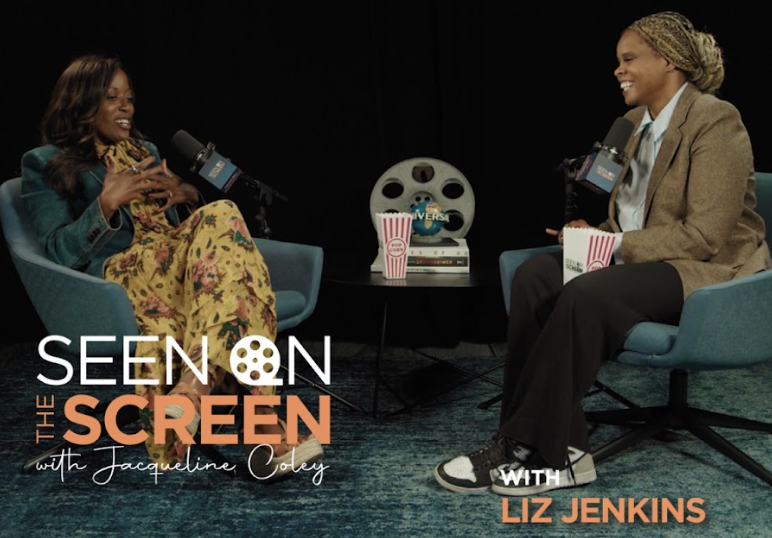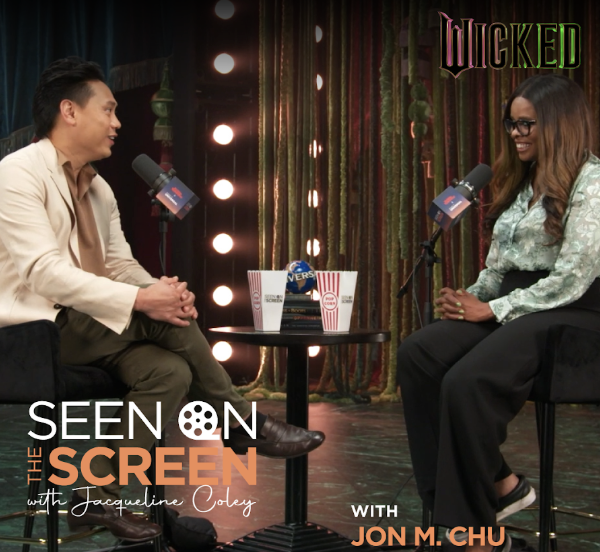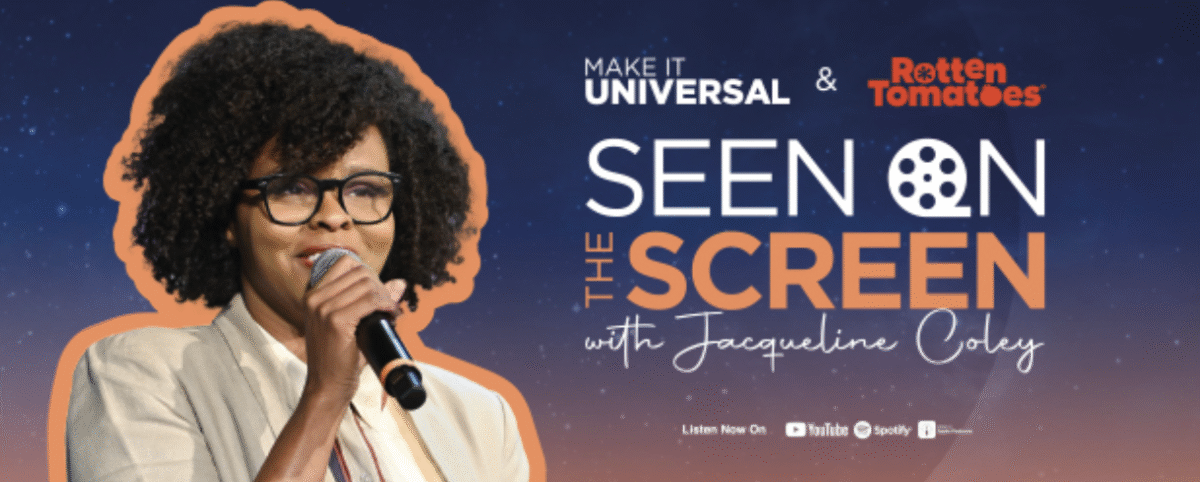Where do you picture yourself in five years? What do you want to do, where do you want to do it, and how exactly are you going to get there? If you’re a college student, this bombardment of questions is all too familiar. The glossy presence of young professionals on TikTok can make it feel like everyone else has it all figured out. With artificial intelligence and market instability disrupting just about every industry, it’s easy to feel nervous, uncertain or even hopelessly lost about post-graduate life.
“Seen on the Screen” is a podcast that offers some peace of mind for young people who want to work in the creative industries.
Universal Pictures and Rotten Tomatoes teamed up to create “Seen on the Screen,” a bi-weekly podcast on a mission to demystify the production industry. Each episode features a different professional from behind the scenes at Universal Pictures and takes us along their journey in the entertainment industry. Host Jacqueline Coley brings her engaging and passionate energy to every conversation, unveiling the hilarious, humbling and deeply human experiences that go into creating film and television magic. Following writers and directors, distributors and marketers, each story is eye-openingly unique and filled with crucial insights into Hollywood.
Coulture had the opportunity to sit down virtually with Coley and Dwight Caines, the President of Domestic Marketing at Universal, to discuss “Seen on the Screen,” their career paths, and all things entertainment.
“You know, I think there are a lot of people studying film and entertainment who aren’t aware of the array of people that you run into, or the roles,” says Caines.
Over the course of his career at Universal, he has influenced the marketing for hundreds of pictures and franchises, including James Bond and Jurassic World.
“Over time, we started to find that the people we were talking to who had jobs that seemed to tell it all, they had interesting backstories, different career paths that landed them in the place that they are now,” Caines explained. ‘I think the big note is, if you listen to the podcast, it could give you a sense that the path you’re on could take very different branches along the way, and all those skills and experiences are transferable.”
Coley agrees. Currently the awards editor at Rotten Tomatoes, host of “Awards Tour Podcast,” and member of the African American Film Critics and Critics Choice associations, her own path was anything but direct.
“I grew up very far away from Hollywood,” Coley said. “The audacity to hope for a career in entertainment is something that is very distant for a lot of people. There’s such an interesting array of paths that got people here, but they all, for the most part, just started out as people who love storytelling.”
“What we truly wanted to do was put a light on the roles that don’t come top of mind,’ Caines added, “So that somebody in the early stage of their career can say, ‘You know what? I know I’m not going to graduate and be a director, but there’s five or six other jobs that can level up my skills, that if I pursue them, director’s not that far from my reach.’’’
An English minor in college, Caines initially hoped to become a screenwriter. While working in customer service at a bank, a connection he made by sending scripts to the West Coast helped him transition into the theatrical research department at Sony Pictures.
“Whether she thought I was a good writer or not, she knew I was an entertainment buff,” Caines said. “She knew I was analytical. She knew I had a strong consumer point of view.”
Coley also dreamed of a career in entertainment, but her path was not linear. She studied business and returned to school after the 2008 recession to study health information technology:
“You grads right now worried about [the recession] but trust me, you can make it through too,” Coley said.
She turned to freelance writing, “sort of like a way to pass the time.” One byline led to another, and Coley has been at Rotten Tomatoes for the past eight years.

The myth that the entertainment industry is accessible only to those with the right connections is one the podcast refutes time and time again.
“One [guest] started as an intern in theme parks,” Caines laughs. “He was assigned to the VIP talent at the theme park. He works in our digital team now, and he is excellent at managing talent and influencers.”
He advises young people to try to learn everything they can and be a “sponge.” Be a sponge.
“People see my resume and they go, ‘Well, wait a minute. The place you spent all this time in the earliest part of your career after graduation looks like the banking industry to me. Why are you here?’” Caines says. “It’s because all of those skills were transferable. And what was in my soul as a storyteller, I get to do as a marketer.’
“The other thing I would say is that it’s never too late,” Coley adds. “I went back to grad school at 33!”
The rise of streaming and social media have made the entertainment industry even more unpredictable. From a marketing perspective, Caines finds these changes exhilarating.
“The bad news is – and it’s why the job is fun – that we can’t predict what’s going to happen,” he said. “I always look at every success or failure and say, ‘Okay, what’s happening in the real world that influenced the success or failure?’
It’s a great reminder to never take career disappointments too personally – to remember the wider scope of events that may influence a rejection.

On the topic of taking risks and disappointment, Coley remembers a particularly potent story from “Seen on the Screen” guest John M. Chu, who directed Universal’s Gem and the Holograms in 2015.
“[Gem and the Holograms] was not exactly the cinematic and box office juggernaut everyone hoped it would be,” Coley said. “But John has been very open and honest with what happened after that movie, and how it helped him rededicate himself as a filmmaker.”
Shortly after the failure, he would go on to direct smash hits Crazy Rich Asians and In the Heights, as well as 2024 sensation Wicked, which took home two Oscars.
“Really, if you’re going to have a moment like [Wicked] in your career, you’re probably going to have to have a lot of Gem and the Holograms,” Coley reflects. “Because learning from that experience is what allowed him to do the rest.”
“If you see it, you can be it,” Caines chimes in, reflecting on what the podcast has the potential to bring for college-aged listeners. “And when I was in college, I didn’t see professors who looked like me. I think I had two black professors over my four years in college, and I sort of felt like, maybe the industry isn’t diverse enough. Whenever I hear [the guests’] stories, it reaffirms the idea that if there’s somebody who can help guide you on your path, who can help you remain curious, who can help you take risks and fail – that’s everything.” For more of the informative and heartwarming personal stories Coley is sharing about lively behind-the-scenes culture at Universal, tune into “Seen on the Screen” on Apple Podcasts, Spotify or Youtube.

